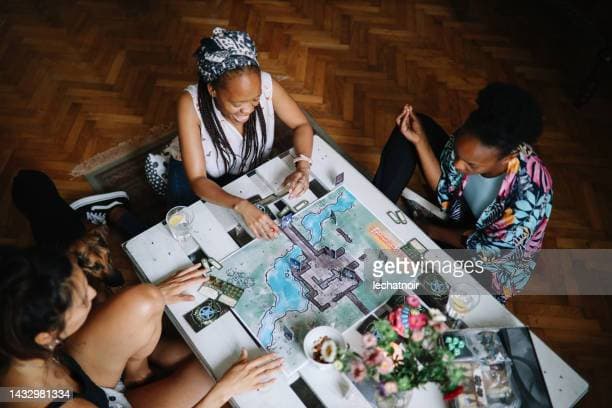A fellow user here - @coelicidium - recently posted about starting a game of the Pool. Here’s a link (you should check it out - maybe you want to play): Let's Play The Pool---Towards the Night
As a result, we got into a bit of a discussion, and Syd posed a very interesting question. I’d like to turn that question over to the community, see what people think.
Basically, it’s this:
In the thread (linked above), I mentioned that one intriguing possibility is for the first-time GM to have a co-GM (who could play various different roles in the game), and volunteered some ideas about that. Another poster, Matt, said that the GM should also be aware and prepared for the burden for scheduling and facilitating, reminders, setting up a call, and so forth. This is also true.
So the questions, then, are:
-
How much responsibility does a GM have, when it comes to running a game? Is the GM expected to do everything?
-
Is it a good idea or a bad idea for a new GM to do so with “training wheels” on? (With assistance or guidance, that is, rather than doing everything yourself.)
Traditionally, GMs a) take the initiative to get a game going at all, b) do the planning, send the emails or messages, pick dates, reminders, and so on, c) host the game (whether in a physical space or by doing the logistics to set up a video call, host documents and notes, etc), d) learn and master the rules of the game, e) facilitate and guide the players through the process (e.g. explaining character creation, showing people how to make an account on Roll20, explaining how a spell works, etc), f) “run” the session itself from a social angle (welcoming everyone, asking for feedback, checking in on people), g) prepare the content for play - adventures, NPCs, a setting, etc, and h) “run” the session in terms of fulfilling their role as the GM (framing scenes, playing NPCs, adjudicating rules and outcomes).
(Probably other things I’m leaving out, too.)
I’d like to make the - hopefully not radical - suggestion that you don’t have to do all those things at once. (Of course, if it’s your initiative to get a game started, most of this or all of it will fall to you, but don’t just assume that this is how it always has to be. Most of the games I’m running these days, for example, have other participants doing the planning, or the hosting, or the maintenance of notes. And in some styles of play - especially OSR games, for instance - there are aids in place like prepared adventure modules. As a final example, I’ve actually run some games which took place a) at someone else’s house, who planned the sessions, invited everyone, and brought food, and b) without knowing the rules to the game - I would simply ask knowledgeable players at the table how certain things would be played out rules-wise, though I was the GM, and they would tell me what dice to roll or whatever else needed to happen. There are many possibilities, and ways this can work!)
What’s your take (dear reader)?
However, Syd’s second question is also interesting: is there an advantage to jumping in with no “training wheels”? Or is it better to learn one part of all this at a time? Or something in the middle?
I like the idea of trying out and mastering some of these skills on their own, individually. Why not have a host and a facilitator and a note-taker, or someone who will play all the NPCs in the game for you? Master one piece of the pie at a time.
Of course, the downside is sometimes that this isn’t practically possible. We don’t all have friends around ready to volunteer for such tasks. However, it’s also my experience that simply explaining that you’d like some help to reasonable human people generally works - after all, they understand the challenges and more than anything they want to play too. So it’s worth asking!
Does anyone else have thoughts, opinions on this, or experiences to share?
